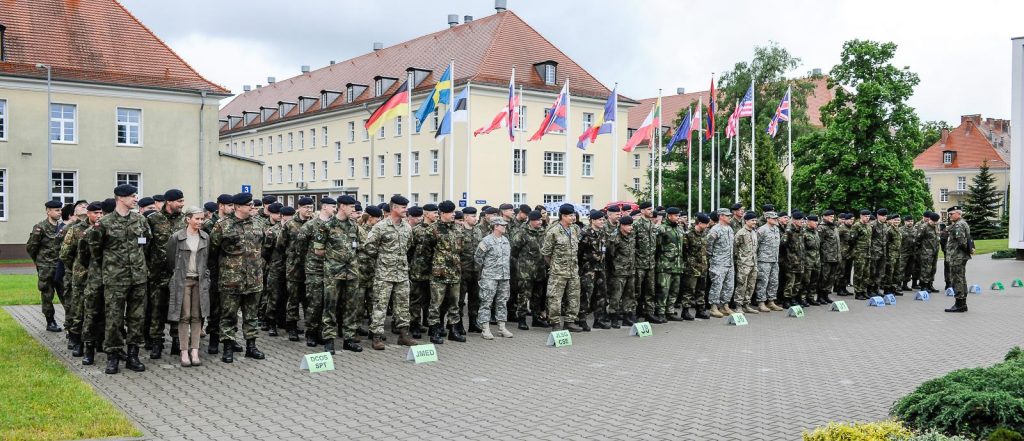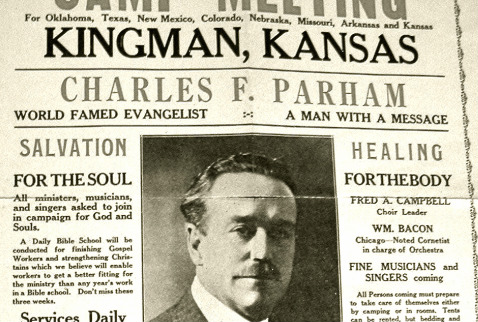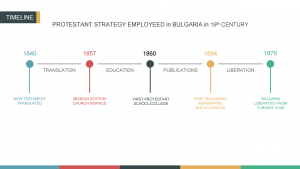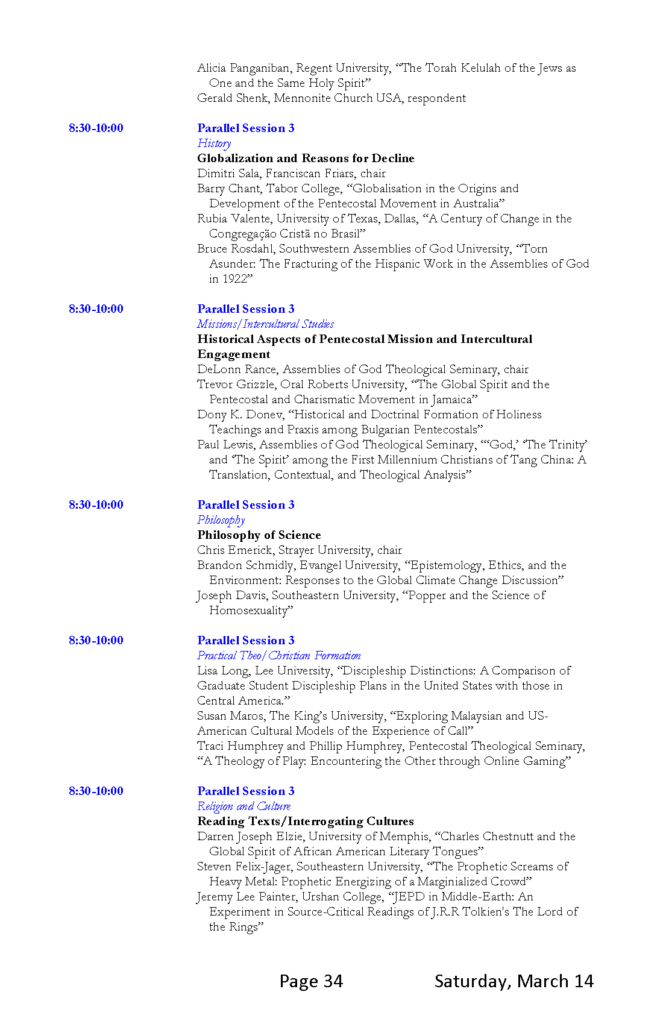Bulgarian Chaplaincy Association: Integration Proposal with Local NATO Programs
 Bulgarian Chaplaincy Association: Celebrating a Decade of Ministry
Bulgarian Chaplaincy Association: Celebrating a Decade of Ministry
We are proud to announce that the Master’s of Chaplaincy Ministry Program, we designed and launched in Bulgaria in 2006, has been selected to be part of the Social Service Program of New Bulgarian University. After being for years a valuable part of the regular curriculum of the Bulgarian Evangelical Theological Institute and the St. Trivelius Institute in the capital Sofia, the chaplaincy program has received the highest level of recognition as successful graduates will be finally able to receive government recognized degrees and apply their knowledge and training in chaplaincy on a professional level. The chaplaincy program can also serve within the Integration Proposal of local NATO programs and be instrumental in dealing with the enormous wave of Middle East migrants crossing through Bulgaria today.
Although the Bulgarian Chaplaincy Association emerges from and ministers within the Bulgarian cultural context, it is designed for integral cooperation with organizations of various origins. This advantage comes from the experience of previous working relationships that the organizations represented within the Association have had with other non-Bulgarian organizations. The vision, structure and operation of the Association incorporate and comply with western styles of chaplaincy work on three levels (1) cultural, (2) educational and (3) governmental.
The cultural heritage of the Bulgarian Chaplaincy Association represents a valuable environment for integration of NATO forces within the local cultural setting. On a cultural level, various events and activities such as English speaking church services, fellowship of soldiers with local communities, hospitals, orphanages and other cultural experiences are available. Humanitarian aid projects are among the most efficient manner for integration within the local community.
On an educational level, there are possibilities on both sides. For example, Bulgarian language courses for the soldiers and English language courses for the local community could be implemented. The most important element within the education strategy perhaps may be education of chaplaincy workers, especially in the current context when Bulgaria is in a need of trained crisis counselors for cases of floods and other natural disasters. Finally, local and national government relations will assist in the change of the status of chaplaincy within the Bulgarian Army. Such an approach will have positive political implications, as chaplaincy becomes a mediator between the army, church and government.
The presented proposal integrates religious moral issues along with socio-political principles in the idea for chaplaincy within the Bulgarian Army. The implications of these principles project involvement of local NATO units in partnership with local Bulgarian organizations. In the case of chaplaincy within the Bulgarian Army, the proposed organization is the newly established Bulgarian Chaplaincy Association. Although political, social and economical issues remain in the scope of its work, the Association’s main priority is the renewal of spirituality within the army structure through cutting-edge chaplaincy ministry beyond the ecclesial gates into a world of war and insecurity. The Bulgarian Chaplaincy Association acts as an agent of spiritual restoration targeting morality within the Bulgarian Army with the Bulgarian chaplain as the key element in this process. For an army without spirituality is no army at all.
Also important [click to read]:
- U.S. Department of State recognizes our chaplaincy efforts in Bulgaria
- Bulgarian Chaplaincy Association: Integration Proposal with Local NATO Programs
- Bulgarian Chaplaincy Association: Vision and Resolution
- Chronology of our role and involvement in developing Church of God chaplaincy in Bulgaria since 2001
- Master’s of Chaplaincy Ministry Program in Bulgaria Reflections
- The Past Decade of Chaplaincy in Bulgaria (2006-2016)
- Related Publications and Presentations by Cup & Cross Ministries International
THE CASE OF A NATO CHAPLAINCY MODEL WITHIN THE BULGARIAN ARMY (Submitted to the Manfred Wörner Foundation)
June 20, 2016 by Cup&Cross
Filed under Books, Featured, News, Publication
 We are proud to announce that the Master’s of Chaplaincy Ministry Program, we designed and launched in Bulgaria in 2006, has been selected to be part of the Social Service Program of New Bulgarian University. After being for years a valuable part of the regular curriculum of the Bulgarian Evangelical Theological Institute and the St. Trivelius Institute in the capital Sofia, the chaplaincy program has received the highest level of recognition as successful graduates will be finally able to receive government recognized degrees and apply their knowledge and training in chaplaincy on a professional level. The chaplaincy program can also serve within the Integration Proposal of local NATO programs and be instrumental in dealing with the enormous wave of Middle East migrants crossing through Bulgaria today.
We are proud to announce that the Master’s of Chaplaincy Ministry Program, we designed and launched in Bulgaria in 2006, has been selected to be part of the Social Service Program of New Bulgarian University. After being for years a valuable part of the regular curriculum of the Bulgarian Evangelical Theological Institute and the St. Trivelius Institute in the capital Sofia, the chaplaincy program has received the highest level of recognition as successful graduates will be finally able to receive government recognized degrees and apply their knowledge and training in chaplaincy on a professional level. The chaplaincy program can also serve within the Integration Proposal of local NATO programs and be instrumental in dealing with the enormous wave of Middle East migrants crossing through Bulgaria today.
In April 2004, Bulgaria was officially accepted into the global structure of the North Atlantic Treaty Organization (NATO). The event followed a long series of historic developments that were accomplished despite the existence of highly antagonistic forces that opposed the very idea of Bulgaria’s membership in any Western alliance. Among these were internal and external political, economical and social factors that historically have forced the country to remain under the influence of the forces opposing the West.
As the country of Bulgaria is now a member of NATO and awaits acceptance into the European Union in 2007, international experts are working with various government institutions and consultant agencies to create an atmosphere in which the Bulgarian mindset can experience a new national revival in the 21st century. NATO’s involvement in this process serves as a catalyst both for reinforcing Bulgaria’s infrastructure and attracting international interest in the country’s affairs. Issues concerning national security, military involvement, international relations, economical development and ethnic diversity are continuously and carefully taken into consideration. However, one issue still remains untouched neither by NATO’s official position in Bulgaria, nor by the Bulgarian government. This is the issue of faith.
Three reasons make such topic of relevant importance. First, Bulgaria claims traditional and historical religious belongingness to the Eastern Orthodox Church. Furthermore, the centuries of religious wars on the Balkans have formed a complete dependency on ethnic religiosity, making faith the prime factor for animosity, hatred and genocide. Finally, the issue of morale and morality in the armed forces remains open for any military unit and will need to be addressed sooner or later in the context of NATO’s presence in Bulgaria.
This research will show how the above issues could be resolved by the presence of a NATO paradigm for chaplaincy within the Bulgarian Armed Forces. The paper will explore the current developments of chaplaincy in Bulgaria on three levels: church, society and government. It will then present the case of “underground chaplaincy” in Bulgaria and provide an appropriate solution to be implemented through the newly established Bulgarian Chaplaincy Association. The conclusion will outline the benefits that can be achieved by a partnership between local NATO representatives and the Bulgarian Chaplaincy Association who combine efforts to restore the spirituality within the Bulgarian Army through the legalization of chaplaincy ministry within its structures.
Also important [click to read]:
- U.S. Department of State recognizes our chaplaincy efforts in Bulgaria
- Bulgarian Chaplaincy Association: Integration Proposal with Local NATO Programs
- Bulgarian Chaplaincy Association: Vision and Resolution
- Chronology of our role and involvement in developing Church of God chaplaincy in Bulgaria since 2001
- Master’s of Chaplaincy Ministry Program in Bulgaria Reflections
- The Past Decade of Chaplaincy in Bulgaria (2006-2016)
- Related Publications and Presentations by Cup & Cross Ministries International
Church of God Chaplaincy in Bulgaria: In the beginning…
 Bulgarian Chaplaincy Association: Celebrating a Decade of Ministry
Bulgarian Chaplaincy Association: Celebrating a Decade of Ministry
We are proud to announce that the Master’s of Chaplaincy Ministry Program, we designed and launched in Bulgaria in 2006, has been selected to be part of the Social Service Program of New Bulgarian University. After being for years a valuable part of the regular curriculum of the Bulgarian Evangelical Theological Institute and the St. Trivelius Institute in the capital Sofia, the chaplaincy program has received the highest level of recognition as successful graduates will be finally able to receive government recognized degrees and apply their knowledge and training in chaplaincy on a professional level. The chaplaincy program can also serve within the Integration Proposal of local NATO programs and be instrumental in dealing with the enormous wave of Middle East migrants crossing through Bulgaria today.
But let us backup just a moment and start from the very beginning. In the summer of 1995, while pioneering the first Bulgarian church in the Chicago Metro, the local Church of God state office offered a civil chaplaincy training course for beginners. Unfortunately, due to our heavy church schedule, the chance to attend was low and virtually unobtainable. It was not until five years later that our interest in the field was finally rewarded, as in the summer of 2000 both my wife-to-be and I completed the required course work for chaplaincy accreditation, followed by an intense module at the Erlanger Hospital in Chattanooga, where essentially the whole idea for the resurrection of chaplaincy ministry in Bulgaria was born.
Today, our Master’s of Chaplaincy Ministry Program has produced a number of graduates who are serving in various chaplaincy positions and civil services in Bulgaria. Please continue to pray for all our named and unnamed chaplains on mission. (Click here to read more)
Also important [click to read]:
- U.S. Department of State recognizes our chaplaincy efforts in Bulgaria
- Bulgarian Chaplaincy Association: Integration Proposal with Local NATO Programs
- Bulgarian Chaplaincy Association: Vision and Resolution
- Chronology of our role and involvement in developing Church of God chaplaincy in Bulgaria since 2001
- Master’s of Chaplaincy Ministry Program in Bulgaria Reflections
- The Past Decade of Chaplaincy in Bulgaria (2006-2016)
- Related Publications and Presentations by Cup & Cross Ministries International
Samson’s Foxes published by Rev. A.J. Tomlinson in Culberson, N.C. (1901-1902)
February 10, 2016 by Cup&Cross
Filed under Featured, News, Publication, Research
Sa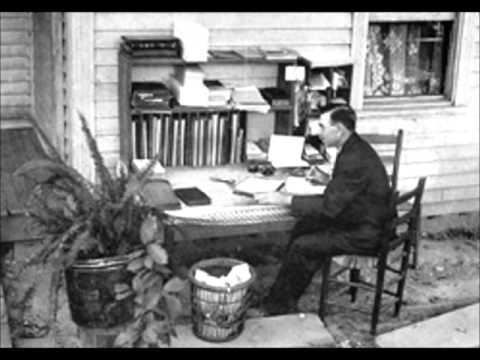 mson’s Foxes published by Rev. A.J. Tomlinson in Culberson, N.C. (January, 1901)
mson’s Foxes published by Rev. A.J. Tomlinson in Culberson, N.C. (January, 1901)
Samson’s Foxes published by Rev. A.J. Tomlinson in Culberson, N.C. (April, 1901)
Samson’s Foxes published by Rev. A.J. Tomlinson in Culberson, N.C. (August, 1901)
Samson’s Foxes published by Rev. A.J. Tomlinson in Culberson, N.C. (September, 1901)
Samson’s Foxes published by Rev. A.J. Tomlinson in Culberson, N.C. (January, 1902)
Samson’s Foxes published by Rev. A.J. Tomlinson in Culberson, N.C. (February, 1902)
Samson’s Foxes published by Rev. A.J. Tomlinson in Culberson, N.C. (March, 1902)
Samson’s Foxes published by Rev. A.J. Tomlinson in Culberson, N.C. (May, 1902)
Selected Publications by Rev. Charles Fox Parham
February 5, 2016 by Cup&Cross
Filed under Featured, News, Publication, Research
The Evelasting Gospel Charles F. Parham
Voice Crying in the Wilderness
Selected Sermons of Charles Parham
CHARLES FOX PARHAM: Founder of the Apostolic Faith
In a time when divine healing and moves of the Spirit had scarcely been heard of, Charles Parham introduced the American Church to the power available through pursuing a Spirit-filled life. He revealed to the church the life-giving power found in the baptism of the Holy Spirit that was evidenced by speaking in other tongues. He sought to bring a balance of both the intellectual and experimental to the Body of Christ: as a teacher, rooted and grounded in the Word of Truth, as well as a healing evangelist moved by compassion, commitment, and an amazing faith.
CHARLES PARHAM and the Apostolic Faith Bible College
In early 1899, Parham opened a home for divine healing. Sarah, Parham’s wife, named it “Bethel.” The purpose was to minister to the sick around the clock. Powerful teaching services were held daily while individual prayer was offered several times throughout the day and night. It was through this healing home that the Bethel Bible College in Topeka, Kansas, started and experienced a glorious batism in the Holy Ghost on January 3, 1901.
We believe that this outpouring of the Holy Ghost was the latter rain that is referred to in the Scriptures. This Bible College, founded by Parham, is still in operation today. It is now known as the Apostolic Faith Bible College, located in Baxter Springs, Kansas. No tuition has ever been charged of any student. Their room and board, along with meals is provided by the sacrifice and generous donations of Apostolic Alumni and friends. The Apostolic Faith Bible College teaches the inspired word of God and works to prepare each student for his or her ministry.
From envisioning and founding a Healing Home to establishing Bible Schools, Charles Parham studied to show himself approved unto God with a rare diligence while fervently working to prove the truth of God’s Word through the demonstration of faith. His ministry contributed to over two million conversions, and his light still shines. His story is an example for the students today. Charles Fox Parham died quietly on January 29, 1929 at the age of fifty-six, but his legacy lives on.
Protestant Strategies in Bulgaria during the 19th Century
April 20, 2015 by Cup&Cross
Filed under Featured, News, Publication
Historical and Doctrinal Formation of Holiness Teachings and Praxis among Bulgarian Pentecostals (Research presentation prepared for the Society of Pentecostal Studies, Seattle, 2013 – Lakeland, 2015, thesis in partial fulfillment of the degree of D. Phil., Trinity College)
The early Bulgarian protestants were mainly Methodists and Congregational. They followed the strategy of the American and British missionaries, which began with a translation of the Bible in the 1840s, followed by the first mission stations and protestant services in the 1850s.
In the following decade, Protestant schools were established in over a dozen Bulgarian cities. A broad stream of educational publications were translated and provided to schools, churches and the open public. The final goal of the missionary strategy was the establishing of churches, which began in the 1870s and continued onward.
The main sources of influence were the American Board of Commissioners for Foreign Missions (setup in Boston) with its local centers in Turkey and then Bulgaria; as well as from the British and Foreign Bible Society which also had centers in Constantinople and its main Slavic arm through the Russian Bible Society based in St. Petersburg.
Additionally, Baptists entered Bulgaria with their own mission work in 1875 and the Adventists in 1891. Although there were no Presbyterians churches in Bulgaria at that time, many of the agents sent by American Board of Commissioners for Foreign Missions were in fact Presbyterian and were educated at Princeton and Drew along with many Bulgarian protestants who studied abroad.
With all these key players present, Bulgaria was eventually introduced to the rise of Higher Criticism (1880–93) and consecutively to the movement to revise the Westminster Confession of Faith (1900–1910). It was met with great resistance among Bulgarian churches. In this context, the search for holiness among Bulgarian evangelicals began at turn of the 20th country not only as an alternative to the liberal theological thought and praxis, but as a move toward a renewed spiritual identity, which ultimately became the channel for introducing Pentecostal-Holiness teachings.
Presenting at the Society for Pentecostal Studies in Southeastern University on “Historical and Doctrinal Formation of Holiness Teachings and Praxis among Bulgarian Pentecostals” (Part 2)
January 25, 2015 by Cup&Cross
Filed under News, Publication, Research
Presenting at the Society for Pentecostal Studies in Southeastern University on “Historical and Doctrinal Formation of Holiness Teachings and Praxis among Bulgarian Pentecostals” (Part 2)
Pentecostal and Charismatic Journals
August 10, 2014 by Cup&Cross
Filed under Featured, News, Publication
- Canadian Journal of Pentecostal-Charismatic Christianity published by the Canadian Pentecostal Research Network
- PentecoStudies Online Journal for the Interdisciplinary Study of Pentecostalism and Charismatic Movements. Published under the auspices of GloPent since 2006.
- Encounter from the website: “The Assemblies of God Theological Seminary is proud to introduce Encounter: Journal for Pentecostal Ministry, a scholarly publication intended to serve the Church of Jesus Christ by bringing transforming theological and professional insight to bear on the practice of ministry in the Pentecostal tradition.” Numerous online articles and book reviews, with additional resources promised for the future.
- UBS Journal Published since 2003 by Union Biblical Seminary in Pune, India.
- Asian Journal of Pentecostal Studies
- Australasian Pentecostal Studies from Southern Cross College in Australia
- Cyberjournal for Pentecostal-Charismatic Research
- Current issue of Enrichment: A Journal for Pentecostal Ministry from the Assemblies of God
- Journal of Asian Mission
- Journal of the European Pentecostal Theological Association Published by the European Pentecostal Theological Association.
- Journal of Pentecostal Theology Abstracts from the journal are available online. From the Publisher: The Journal of Pentecostal Theology is the first academic serial to publish constructive theological research from a Pentecostal perspective on an international scholarly level.
- Mission and Ministry Journal published by Trinity Episcopal School of Ministry
- PNEUMA: The Journal of the Society for Pentecostal Studies
- Reconciliation, a journal for PCCNA (Pentecostal/Charismatic Churches of North America) edited by Harold D. Hunter and Cecil M. Robeck, Jr. In order to view this issue, one must have the freely distributed Adobe Acrobat Reader. This file is 457K. Hyperlinks may be found throughout the document, but particularly on the title page.
- Renewal Journal The Renewal Journal is published twice a year in Australia for people interested in renewal and revival. Many articles by diverse authors.
Master’s Degree of Chaplaincy Ministry in Bulgaria
 The Master’s Degree of Chaplaincy Ministry was intended to:
The Master’s Degree of Chaplaincy Ministry was intended to:
1) Present a master’s level course work by the Bulgarian Chaplaincy Association and its educational initiative to the Bulgarian Evangelical Theological Institute (BETI) and the Bulgarian Ministry of Education.
2) Be received and approved by BETI as a master’s level educational program on a national level.
3) Aid BETI’s faculty with an international team of qualified professors for the completion of the educational process.
4) Satisfy the educational requirements for a chaplaincy vocation properly contextualized for Bulgaria in association with secular educational institutions, if necessary.
5) Provide the necessary knowledge and practical skills to people with a call on their lives for chaplaincy ministry
- Chaplaincy Conference and Master’s of Chaplaincy
- Chaplaincy Course in Yambol, BULGARIA
- Bulgarian Chaplaincy Association Annual Meeting
- Family Seminar for Military Men and Women
- Cup & Cross Ministries in Church of God Publications
- The Case of a NATO Chaplaincy Model within the Bulgarian Army
- 10 Years of Military Ministry in Bulgaria
- Bulgarian Chaplaincy Associations Recognized by U.S. Department of State
- National Chaplaincy Conference
- Bulgarian Chaplaincy Association Gains Legal Status
- Chaplain Dees Visits Bulgaria
- Chaplaincy Course at the Bulgarian Evangelical Theological Institute
- Bulgarian Chaplaincy Association
- Meeting the NATO Chaplain
- National Chaplaincy Meeting
- Chaplaincy Developments in Bulgaria
- U.S. Bases in Bulgaria
- National Chaplaincy Meeting
- Chaplaincy in Bulgaria
- HEALTHCARE CHAPLAINCY IN BULGARIA
- Chaplaincy in Bulgaria
- Mission Bulgaria
Bulgarian Study New Testament
Comments Off on Bulgarian Study New Testament
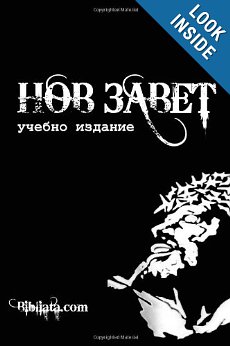 We are truly blessed to introduce for the first time the Bulgarian Study New Testament. The text is specifically designed and printed for Bulgarian immigrant churches outside of Bulgaria and specifically for the Goodwin need of Bibles, study guides and leadership literature among the Bulgarian Churches in North America. This first edition contains:
We are truly blessed to introduce for the first time the Bulgarian Study New Testament. The text is specifically designed and printed for Bulgarian immigrant churches outside of Bulgaria and specifically for the Goodwin need of Bibles, study guides and leadership literature among the Bulgarian Churches in North America. This first edition contains:
- Revised protestant Bible History of the New Testament texts
- The Story of the Bulgarian Bible
- Harmony of the Gospels
- Prologue to each book
- How can I be saved?
- What the Bible says about…
- Holy Spirit in the life of the believer
- Prayer Devotions
- Praise and Worship Lessons
- Role of the Church in the world
- Theology in contrasts
- Names and titles of Jesus Christ
- Messianic Prophecies Fulfilled
- The miracles of Jesus
- The proverbs of the Lord
- Model and use of the Tabernacle
- Maps of Biblical places
- Plan of the Last days and the Book of Revelation


